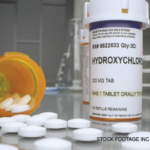
Yongcharoen_kittiyaporn / shutterstock.com
Multiple studies show that hydroxychloroquine (HCQ) has many benefits in systemic lupus erythematosus (SLE), including cardiovascular benefits, such as reducing coronary artery and thrombosis risks. HCQ can prevent disease flares, including in renal and central nervous system lupus, and is the only drug shown to prolong survival in lupus. However, guidelines released in 2016 by the American Academy of Ophthalmology (AAO) highlight potential retinal risks from long-term use of HCQ. These guidelines recommend the use of newly available screening tests for retinopathy and limitations on the dose of HCQ, causing confusion among rheumatologists regarding the guidelines, the screening tests and their interpretation.
Is the dose of HCQ ≤5 mg/kg real body weight recommended by the AAO appropriate? This year’s debate by experts in the field will lead to greater of understanding of both the risks and benefits of HCQ in SLE and the role of the AAO guidelines across disciplines. In this session, Nathalie Costedoat-Chalumeau, MD, PhD, of the Cochin University Hospital, Paris, will introduce the topic. Michelle Petri, MD, MPH, professor of medicine and director of the Lupus Center at Johns Hopkins will review the many benefits of HCQ and present the position that the new guidelines are inappropriate. James T. Rosenbaum, MD, the Edward E Rosenbaum Professor of Inflammation Research at Oregon Health & Science University and the Richard Chenoweth Chair of Ophthalmology at Legacy Devers Eye Institute, both in Portland, Ore., will take the opposing viewpoint and discuss the rationale for the new guidelines and why the AAO deems them necessary.
Dont miss 2018 Great Debate
Guidelines for SLE: HCQ Dose Should Be No More than 5 mg/kg in All Patients
Sunday, Oct. 21
2:30–4 p.m.
McCormick Place
Chicago


